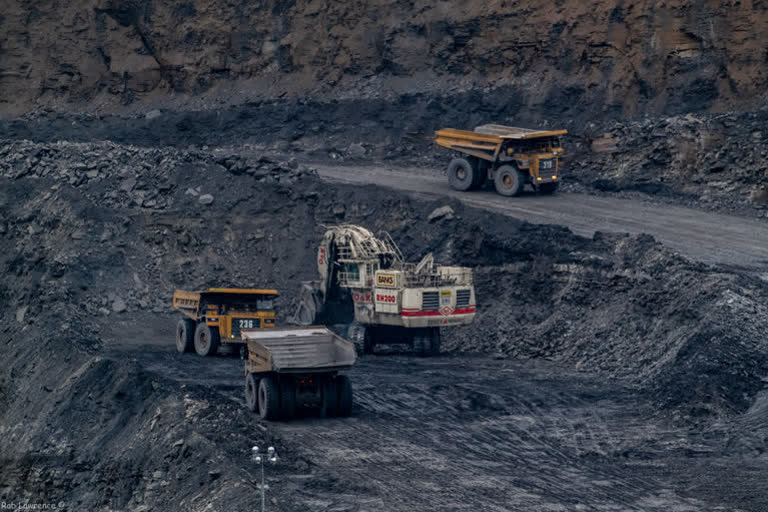New Delhi:The Centre's decision to auction coal blocks for commercial mining to revive India's flailing economy has triggered debate and discussion from people all across the country and the globe.
Not only Indian, but even global NGOs have raised concerns against the auctioning of coal blocks. They have asked India to stop the use of coal for reviving the country's economy, citing that coal mines are mostly concentrated in areas inhabited by indigenous people who have been bearing the brunt of the COVID-19 pandemic.
The Denmark-based International Work Group for Indigenous Affairs and New Delhi-based National Campaign Against Torture and Indigenous Lawyers Association of India, made the appeal to the government ahead of the auctioning of 41 coal blocks slated for September 29 as a part of India's 'Aatma Nirbhar Bharat Abhiyan' and to revive the economy.
Kathrin Wessendorf, Director, International Work Group for Indigenous Affairs said, "The coal mines are mostly concentrated in the lands inhabited by India's Indigenous People in Maharashtra (three mines), Jharkhand (nine), Odisha (nine), Chhattisgarh (nine) and Madhya Pradesh (11). Analysis of the descriptions of the 41 coal mines available on the website of the MSTC Limited under the administrative control of the Ministry of Steel, Government of India show that a staggering 30 coal blocks (73%) do not have the mandatory forest clearance required under the Forest (Conservation) Act of 1980, and 37 coal blocks (over 90%) do not have the mandatory Environmental Clearance required under the Environment Impact Assessment Notification 2006."
"The auctioning of the coal blocks without obtaining mandatory legal clearances effectively is bad news for the rule of law with respect to the most vulnerable people on the planet," she said, adding that using coal for reviving the economy through 'Self Reliant India' would be at the cost of the indigenous peoples.
Read:Farmers protest against farm ordinance in Haryana
"Historically, Indigenous Peoples have borne the brunt of India's development. The Planning Commission of India stated in October 2001 that during 1951-1990, 21.3 million people were displaced by various development projects, out of which 8.54 million i.e. 40.1% were tribals although the tribals had constituted only 8% of the total population of the country at 1991 census. They must not once again be forced to bear the brunt of India's COVID-19 economic recovery plans," said Dilip Chakma, President of the Indigenous Lawyers Association of India.
